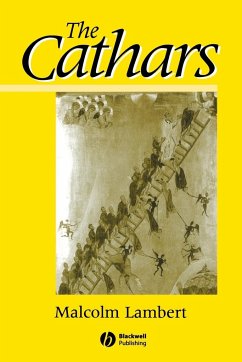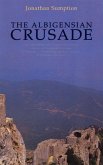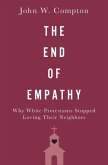Lamberts Buch über die Katharer gilt als 'the most comprehensive and up-to-date treatment to the subject'. Ausführlich und anschaulich schildert er Aufstieg und Fall dieser radikalsten religiösen Bewegung des Hochmittelalters, von den ersten Spuren im Rheinland im 12. Jahrhundert bis zu den letzten Ausläufern in Bosnien im 15. Jahrhundert. The first comprehensive account in English of the most feared and mysterious of medieval heretics.
Examines the rise and fall of Catharism and its followers from C12 Rhineland through to C15 Bosnia.
Presents an account of the most feared and the most mysterious of medieval heretics. A crusade was launched to uproot them in the south of France, the Inquisition was developed to suppress them, and St Dominic founded his friars to preach against them. This book studies the rise and fall of the heresy from the 12th-century to 15th-century.
Examines the rise and fall of Catharism and its followers from C12 Rhineland through to C15 Bosnia.
Presents an account of the most feared and the most mysterious of medieval heretics. A crusade was launched to uproot them in the south of France, the Inquisition was developed to suppress them, and St Dominic founded his friars to preach against them. This book studies the rise and fall of the heresy from the 12th-century to 15th-century.

PROTESTBEWEGUNG. Im zwölften Jahrhundert sahen sich die westeuropäischen Kirchenvertreter mit einer Glaubensbewegung konfrontiert, die in ihrer Verachtung alles Materiellen, der Ablehnung zentraler kirchlicher Lehren und dem Anspruch auf moralische Überlegenheit alle bisherigen Häretiker an Radikalität übertraf. Die Katharer, die "Vollkommenen", schufen eine dualistische Gegenkirche mit eigener Dogmatik und Führungsstruktur, die sich rasch im Languedoc und in Italien ausbreitete und erst im vierzehnten Jahrhundert von der Inquisition vollständig zerschlagen wurde. Ihre östlich geprägte Spiritualität, schreibt der englische Historiker Malcolm Lambert, stellte aus Sicht der Kirche eine "tiefgreifende Entstellung der wesentlichen christlichen Traditionen" dar. Nach Lamberts umfassendem Überblick über die "Häresie im Mittelalter" (F.A.Z. vom 26. April 2001) liegt nun sein spannender und gut lesbarer "Versuch einer komplexen Zusammenfassung der gesamten Geschichte des Katharertums in ganz Westeuropa" in deutscher Übersetzung vor. (Malcolm Lambert: "Geschichte der Katharer". Aufstieg und Fall der großen Ketzerbewegung. Aus dem Englischen von Raul Niemann. Primus Verlag, Darmstadt 2001. XII, 408 S., Abb., Karten, geb., 78,- DM.)
adr
Alle Rechte vorbehalten. © F.A.Z. GmbH, Frankfurt am Main
"Catharism was the most radical of medieval heresies. Since ittouched most areas of Europe in some degree, research on itscharacter and fortunes makes formidable demands on the learning andlinguistic ability of any scholar who tackles it, not to mentiondemands also on his judgement. Malcolm Lambert, well known for hislucid and authoritative writings on medieval heresy, is a match forthis challenging task. His new book, The Cathars, is to bewelcomed as the most comprehensive and up-to-date treatment of thesubject now available in English." Alexander Murray, UniversityCollege, London
"Lambert's command of the literature and hisability to integrate it into a coherent narrative are unmatched.His book deserves to become the standard account of medievalCatharism." Medieval Review
"This is the first comprehensive study in English of the mostmysterious and radical of medieval heresies. Malcolm Lambert ...'combines scholarly investigation with lucid narrative.'" TDBook Survey
"Malcolm Lambert, with deep erudition allied to pristinesensitive prose, masterfully narrates [the] distinctive history[of] the cathars ... The Cathars ... is, quite simply,indispensible." Catholic Historical Review
"Lambert's command of the literature and hisability to integrate it into a coherent narrative are unmatched.His book deserves to become the standard account of medievalCatharism." Medieval Review
"This is the first comprehensive study in English of the mostmysterious and radical of medieval heresies. Malcolm Lambert ...'combines scholarly investigation with lucid narrative.'" TDBook Survey
"Malcolm Lambert, with deep erudition allied to pristinesensitive prose, masterfully narrates [the] distinctive history[of] the cathars ... The Cathars ... is, quite simply,indispensible." Catholic Historical Review








